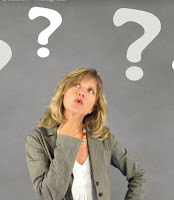We get asked this a lot.
There's been quite a battle going on. I will generalise:
Group one... fans of two men who thought they'd invented it in the 1940s, and who were completely convinced that autistic people were broken versions of other people. Young boys with strange behaviour...maybe an occasional young girl. No empathy, repetitive meaningless behaviour, resistance to change, no interest in other people.
It didn't matter that autism was well described by a woman, years beforehand. The men got the acclaim for this supposed discovery.
It was important to put autistic people into 'mental hospitals', describing them in entirely negative language like deficit, disorder, obsessive, etc. It was important to stop their 'behaviour' by enforcing normalisation, because this was believed to be better for us.
We were too-often experimented upon as if we lacked opinions, feelings, insight, pain responses or human rights.
No progress was made. But they just had to keep on doing these things, convinced that at any moment, they were going to prove that there was some fix, some cure, some pill, potion, lotion, electric shock, operation or genetic wizadry that would remove autism.
Nothing worked. Well, some autistic people were forced to do repetitive things, and others were forced to sit really still and be really quiet. This was called a success. Mmm.
Group two... the autistic researchers, academics, specialists and our allies. The rise of the neurodiversity movement.
We want human rights for all autistic people.
We want every autistic person to thrive as their own best version of themselves, not a fake copy of someone else.
We appreciate autistic communication as a genuinely different way to socialise with one another. No, really. See research links below.
We appreciate the deep focus that autistic people have for their specialist interests, their hobbies and perhaps future careers.
We see autism as a largely sensory condition, in which our brains take in too much information in busy, noisy places. Too much from flickering light and loud sound. Too much from odours and rough textures. Too much from noisy chattering. So we respect those who need quieter, better spaces.
We want every autistic person to have excellent support, whatever their level of support needs. Truly person-centred.
We want every autistic person to have excellent healthcare, whatever their communication needs. That worryingly low average age of death has to change.
We want all families to feel supported and valued also.
We want to leave negative language about us in the past, where it belongs. Stigmatising language has done such damage. None of it is necessary. Not for alleged 'treatment' or for anything else.
In line with the National Autistic Society and the Parliamentary Reports, we want autistic people to be freed from inappropriate hospital placements and given proper, safe community homes where they can belong. Where they can thrive. Where they can flourish as themselves, amongst those they choose and whom they trust.
We know that so many autistic people are still to be discovered, thanks to those old myths about it. Autistic females, Black individuals, Asian individuals, older individuals. So many different groups who were left out of diagnosis, denied diagnosis.
So many who have found better self-understanding through realising they are autistic. Better chances of finding places that suit their needs, now they understand those needs. Better chances of finding good relationships, now they understand how they communicate and how they can thrive.
A diagnosis should never be a pathway to a locked door, normalisation-enforcement and a daily list of negative words and low expectations.
A diagnosis should be a pathway to thriving and to meaningful access to everyday things, in the same way as others expect.
Time to leave the past where it belongs, and gather round our autistic loved ones with new appreciation, and new hope for the future.
Thank you for reading.
Want more info and research on the above? Sure - go to
http://annsautism.blogspot.com/2019/01/autism-some-vital-research-links.html as a good starting point. Using that as your starting point, lLook up the best respected autistic academics and our allies, and read what they write. Get the books by Dr Luke Beardon, for example. Look at the outputs from the autistic-led research conferences that happen regularly through the year. Ask us.
